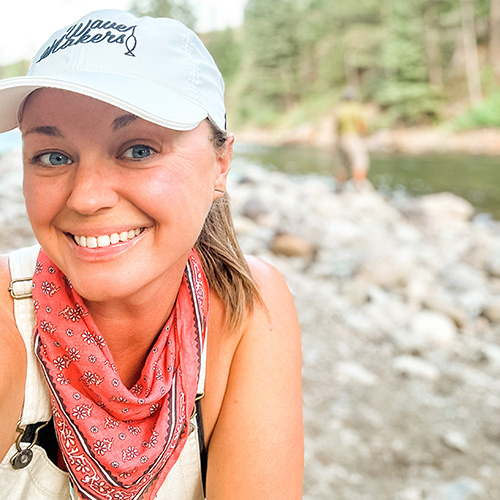Tips For Ethical, Conservation-Forward Fly Angling
By Lindsay Kocka
Oct 17, 2023
Explore a list of simple tips, principles, and educational information to become a more conservation-forward and ethical angler.
Within our current landscape where more and more people are taking to the water and experiencing the volume of benefits that fly fishing has to offer, it's more important than ever that we take an approach to the sport that focuses on being conservation-forward anglers practicing strong stewardship ethics. While there are countless ways that we can all choose to protect our fisheries, practicing a few basic principles during our fly fishing outings can have a lasting impact on the health of our waterways while also helping to ensure that many generations to come will have the opportunity to enjoy the happiness and health that fishing brings to our lives.
Crimp Barbs
One of the simplest ways to help mitigate undue harm that can take place while fishing, crimping the barbs on your hooks typically allows for quick and easy hook removal with minimal damage occurring to your catches soft tissue. Bonus: hooks sans barbs are exponentially easier to remove from our own bodies and/or clothing in the case of any unexpected mishaps.
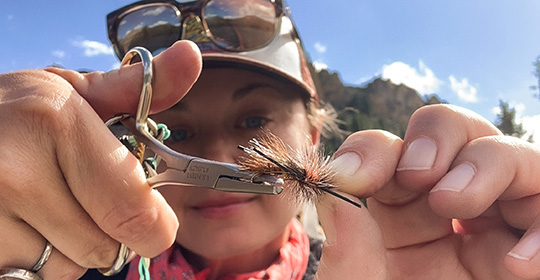
Use Safe Fish Handling Methods
While handling fish that we plan on releasing it’s ideal to minimize both handling itself as well as air exposure. If you are hoping to snap a quick photo before your release, consider either keeping the fish in the water or only lifting it out of the water for 3-5 seconds. Always be sure to wet your hands before touching a fish and avoid squeezing or applying any considerable pressure.
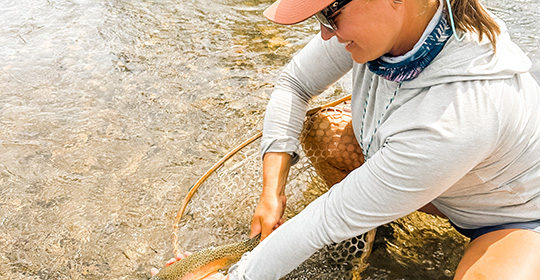
Thoroughly Clean Boats and All Gear
With the continual onset of invasive species having an adverse effect on the health of the ecosystems that support our fisheries, ensuring that all boats and wade fishing gear is clean and clear of any potential invasives is essential. Especially while traveling between different bodies of water, take the time to inspect your gear and clean it accordingly.
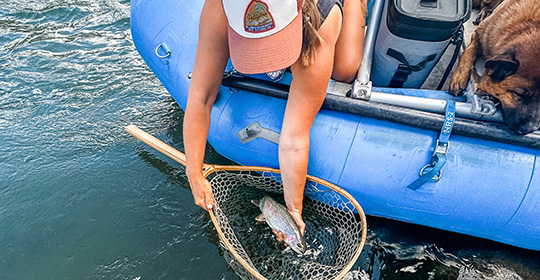
Use Non-Toxic Fishing Materials
When choosing from the many brands available opt for both floatant and split shot varieties that are non-toxic and safer options for our fisheries and the many organisms that inhabit and support them.
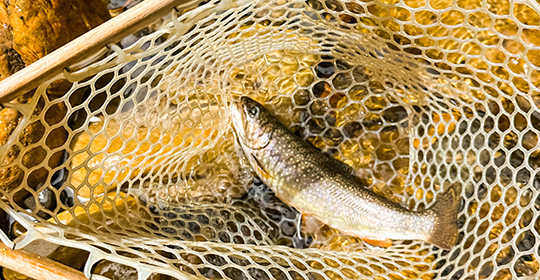
Avoid Littering Micro-Trash
It goes without saying that we always want to leave no trace and avoid littering in outdoor spaces. Even the small clippings from our leaders and tippets that accumulate while we’re changing flies should be stored and disposed of properly.
Understanding Species, Harvesting, And Spawning Seasons
Supporting both catch and release and catch and keep fishing, it’s important to know how to identify species and adhere to their corresponding regulations. At times that may require immediately releasing certain species, and in other circumstances there may be regulations in place that require the harvest of invasive non-native fish species. Additionally, putting the time in to research spawning seasons and understanding how to spot spawning beds(redds) and actively spawning fish is critical to the growth and preservation of our fish populations. When you observe spawning beds and actively spawning fish the most ethical approach is to both avoid stepping on the beds while also steering clear of casting to the fish that are engaged in spawning.

